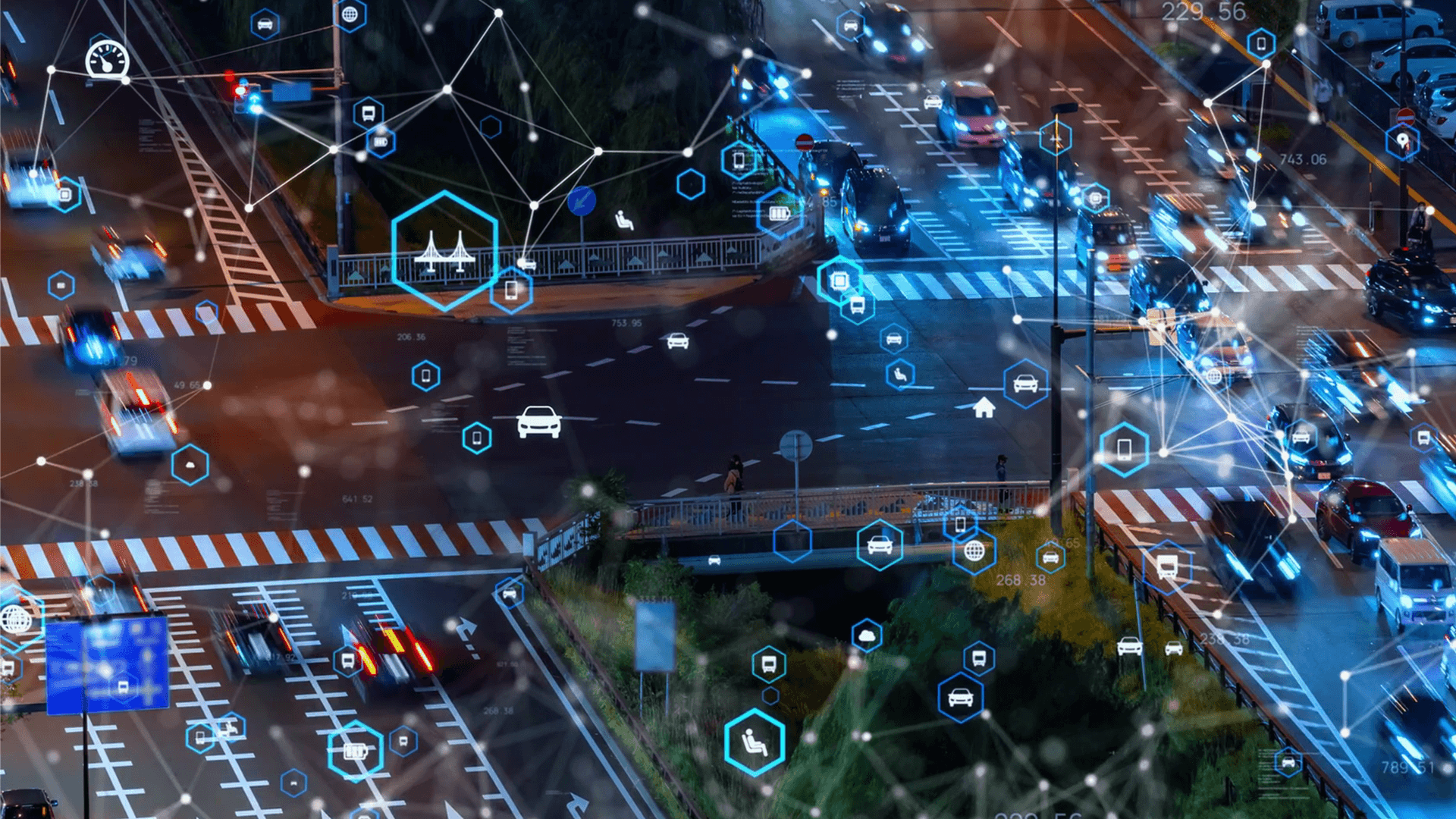Written by Geoff Jamieson, Managing Director of ORCODA (ASX: ODA)
The Smart Cities of the future require connected Electrified Transportation Networks integrated with Intelligent Transport Management platforms and Smart Infrastructure Devices
Smart cities enable modern functionalities like sustainable energy and electrified transportation networks and focus on the information and communication technologies (ICTs) to improve operational efficiency of future cities. For a city to be considered “smart,” it must have three core components: Electrification, Connectivity, and Data Analytics.
- Electrification is necessary for powering a smart city, as it provides the energy needed to run essential services and to power the multitude of smart devices + smart tech (Internet of Things (IoT), Smart Lighting (SL), Augmented Reality (AR), Virtual Reality (VR), Machine Learning (ML), Artificial Intelligence (AI) and Smart Assets (SA) e.g., electric vehicles, drones etc) within the cities we live, work and play.
- Connectivity refers to the infrastructure that supports data communications between devices, transportation platforms and data delivery systems (6G, Satellite, NBN etc)
- Data analytics utilising AI will be used to examine large data sets to identify trends and patterns to optimise our cities as new technologies emerge in our interconnected world.
Together, these three components make up the backbone of a smart city.
Electrification will be the smart technology that propels us towards our smart city vision for the future. It enables many modern functionalities connecting the assets people live in and travel in or on, through Wireless Mesh Networks (WMN) that will deliver incredible speed and accuracy, achieving sustainable energy and an electrified, digitalised and connected transportation network. Smart electrification can help cities save money, reduce emissions, and improve quality of life for residents. For example, electrified transportation networks can reduce traffic congestion and pollution, while also providing cleaner, quieter, and more efficient transportation options.
Old, outdated infrastructure, like stoplights and traffic signs etc, will be replaced with Intelligent Transport Management Systems that are interconnected to smart devices and smart transport management platforms utilising AI, ML and AR.
Smart Highways (road, rail and air) is another area where electrification will be embraced to create a more efficient and sustainable future. Electric vehicles and drones will make running a transport system much more complex, as it’s not just about planning your route — you need to consider charging, range, and the price of electricity during the day. So, connectivity and digitalisation are essential. Smart Highways will use Intelligent Transportation Management Systems (ITMS) to manage traffic flow and reduce congestion. ITMS will use smart sensors and cameras to collect data about traffic patterns, which is then used to optimise traffic flow. By reducing congestion, ITMS can help reduce emissions from idling vehicles. Electrification is an integral part of creating smarter cities and smarter highways that can help us move towards a more sustainable future.
The next step is then integrating all the above with digital twins of smart cities and smart highways, to gain an accelerated holistic understanding and optimised decision-making. This integration with digital twins will allow transport technologies utilising AI and blockchain to make use of real-time and historical data to simulate predicted futures. This would allow us to make decisions that are motivated by outcomes rather than by data alone. Additionally, digital twins could be tailored to specific use cases, making them even more useful for transport and infrastructure planning. Ultimately leading to the efficient and effective smarter cities and smarter highways of the future.
ORCODA Limited (ASX: ODA) is an integrated technology company that provides smart software solutions for transport logistics and transport infrastructure services. Our proprietary cloud-based, open ended, end-to-end software technology platforms have true optimisation capabilities, enabling clients to generate real time, fast, accurate and reliable information to make data-led decisions for the movement of people, parcels and goods, the assets they travel in and the infrastructure they travel on. Our transport infrastructure services (via Betta Group) deliver electrification optimisation solutions primarily in major road, rail and air infrastructure projects and is an integral part of achieving our Smart City Vision – “A total eco-system of interconnected technology providing big data to drive continual optimisation”.




